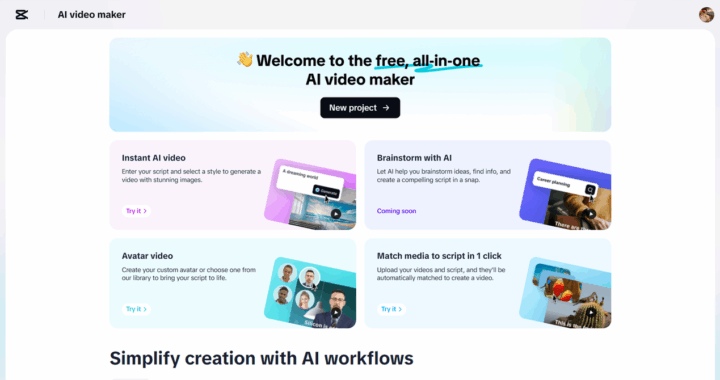The Digital Economy: How Content Delivery Platforms Are Changing Business Models Description

Explore how content delivery platforms are reshaping business models in the digital economy. Learn about AI-driven personalization, network effects, hybrid monetization, and the challenges of regulatory compliance in an evolving market.
In today’s digital economy, content delivery platforms are transforming business models through data-driven personalization, network effects, and hybrid monetization strategies.
They’re harnessing AI and machine learning to optimize user experiences, boosting engagement and retention. Mobile commerce is surging, with e-commerce projected to hit $17.53 trillion by 2030.
However, increased regulatory scrutiny poses challenges, requiring platforms to navigate compliance while maintaining their competitive edge.
As the digital landscape evolves, successful platforms, including Canadian IPTV, will need to continuously innovate and adapt to stay ahead. Keep exploring to uncover the key strategies and technologies shaping the future of content delivery.
Platform Economy Fundamentals
The platform economy fundamentally transforms how businesses operate in the digital age. It’s driven by digital platforms that connect buyers and sellers, disrupting traditional business models.
Major players like Amazon, Apple, Google, and Facebook leverage the power of network effects to create immense value by facilitating user connections and offering diverse products.
As e-commerce and digital commerce explode in growth, expected to hit $17.53 trillion by 2030, it’s clear the platform economy is here to stay.
Platforms offer significant competitive advantages by reducing transaction costs, enabling more competitive pricing. They also harness data analytics to optimize processes and personalize customer experiences.
Understanding the nuances between open vs. closed platforms and centralized vs. decentralized structures is key to navigating this landscape. Ultimately, the platform economy represents a seismic shift in how business is done.
Companies that embrace digital transformation and adapt to this new reality will be well-positioned to thrive, while those that cling to outdated models risk obsolescence.
The future belongs to agile, data-driven businesses that can leverage the power of platforms to connect with customers in innovative ways.
Value Creation Strategies
Content delivery platforms create immense value by leveraging data analytics to personalize user experiences, driving engagement and customer retention. As digital platforms grow their user bases, network effects amplify their value, enabling them to offer more diverse content and attract even more subscribers.
You’ll find that successful platforms often employ hybrid monetization strategies, combining subscription models with ad-supported content to diversify revenue streams and capture wider audiences.
The shift towards digital-first approaches has fueled significant revenue growth for content delivery platforms, with projections indicating digital content revenue could reach a staggering $17.53 trillion by 2030.
To maintain their competitive advantages in this rapidly evolving landscape, platforms must continually innovate their content delivery methods. This includes leveraging AI-driven enhancements to personalize user experiences further and integrating user-generated content to keep pace with changing consumer preferences.
By focusing on these value creation strategies, digital platforms can solidify their positions as leaders in the digital economy, driving engagement, revenue growth, and customer loyalty through cutting-edge content delivery and personalization techniques.
Technological Innovations
Harnessing the power of cutting-edge technologies, content delivery platforms are revolutionizing the digital landscape through AI-driven personalization and data-driven optimizations.
- Platforms like ChatGPT and Character.ai use AI to automate customer interactions and personalize user experiences.
- Advanced data analytics help optimize content recommendations, boosting engagement and retention.
- Netflix uses AI to analyze viewing patterns and tailor suggestions, reaching 182 million subscribers by 2020.
- Mobile commerce and app-based services are reshaping consumer expectations with instant content access.
- Blockchain is being explored for secure content distribution and decentralized content ownership.
- Technological innovations are redefining the digital economy and content delivery.
- AI, data analytics, and blockchain will continue to revolutionize content creation, delivery, and consumption.
Market Growth Drivers
Driving the exponential growth of the digital economy, content delivery platforms are capitalizing on key market trends and technological advancements. You’re witnessing a surge in e-commerce, projected to reach a staggering $17.53 trillion by 2030, fueled by evolving consumer preferences for online shopping and digital content consumption.
The integration of AI and machine learning into these platforms is revolutionizing user personalization and engagement, leading to higher customer retention rates and satisfaction.
Additionally, the rise of mobile commerce is transforming how you access content and make purchases, with optimized mobile platforms becoming a necessity.
Content delivery platforms are adapting to these market growth drivers by:
- Leveraging AI and machine learning to create hyper-personalized user experiences
- Prioritizing mobile-first strategies to cater to the increasing mobile commerce trend
- Adopting subscription-based models to generate recurring revenue streams
As Internet connectivity expands worldwide, you’re seeing content delivery platforms seize the opportunity to reach diverse markets and drive business growth.
The digital economy is reshaping traditional business models, and content delivery platforms are at the forefront of this transformation, harnessing market trends and technological innovations to thrive in the ever-evolving landscape.
Regulatory Challenges
Navigating the complex web of global regulations, content delivery platforms find themselves grappling with an increasingly challenging landscape. They’re facing heightened regulatory scrutiny as governments worldwide seek to tackle critical issues like data privacy, content moderation, and monopolistic practices.
The EU’s Digital Services Act and GDPR impose stringent requirements on platforms, mandating compliance that can affect operational strategies, user experience, and monetization. In the U.S., intensifying discussions around antitrust laws could significantly impact the business models of major players.
These regulatory challenges often compel platforms to invest heavily in legal and compliance resources, diverting funds from innovation and potentially dulling their competitive edge.
As content delivery platforms navigate this complex terrain, they must strike a delicate balance between meeting regulatory obligations and maintaining the agility to thrive in the fast-paced digital economy.
It’s a high-stakes game where the ability to adapt swiftly to evolving regulations can make or break a platform’s success. In this landscape, those who can deftly navigate the regulatory minefield while still driving innovation will be best positioned to emerge as leaders in the digital content delivery space.
Frequently Asked Questions
What Are the Key Differences Between Traditional and Digital Business Models?
You’ve seen a shift from one-time sales to recurring subscription services. Digital models offer multiple revenue streams, global market reach, and scalability. They prioritize user experience, audience targeting, and brand loyalty to drive content monetization.
How Do Content Delivery Platforms Impact Intellectual Property Rights?
Content delivery platforms raise complex intellectual property issues around licensing, ownership, and fair use. You’ll need to navigate copyright challenges, digital rights management, potential infringement liability, and royalty complexities given the scale of distribution and enforcement difficulties.
What Role Does Data Analytics Play in Content Delivery Platforms?
You harness data analytics to drive content personalization and audience segmentation. Predictive analytics and trend analysis inform decision-making, while real-time reporting and data visualization optimize user engagement, performance metrics, and revenue on your content delivery platform.
How Are User Privacy Concerns Addressed in the Digital Economy?
You’re navigating a complex landscape of data monetization and behavioral tracking. Prioritize user consent, control, and anonymity through encryption and transparency measures. Adhere to privacy regulations to mitigate security breaches and address ethical considerations in the digital economy.
What Are the Potential Long-Term Effects of Content Delivery Platforms on Employment?
You’ll see remote work and the gig economy grow, with workforce automation causing job displacement. However, new opportunities in digital content creation and freelance marketplaces will emerge, requiring skill transformation and training programs for employment diversification.



 Ultimate 3 Sites For Purchasing Instagram Followers
Ultimate 3 Sites For Purchasing Instagram Followers  Use AI Video Maker to Launch Seasonal Greetings That Wow
Use AI Video Maker to Launch Seasonal Greetings That Wow  How to Choose the Perfect Homecoming Dress
How to Choose the Perfect Homecoming Dress